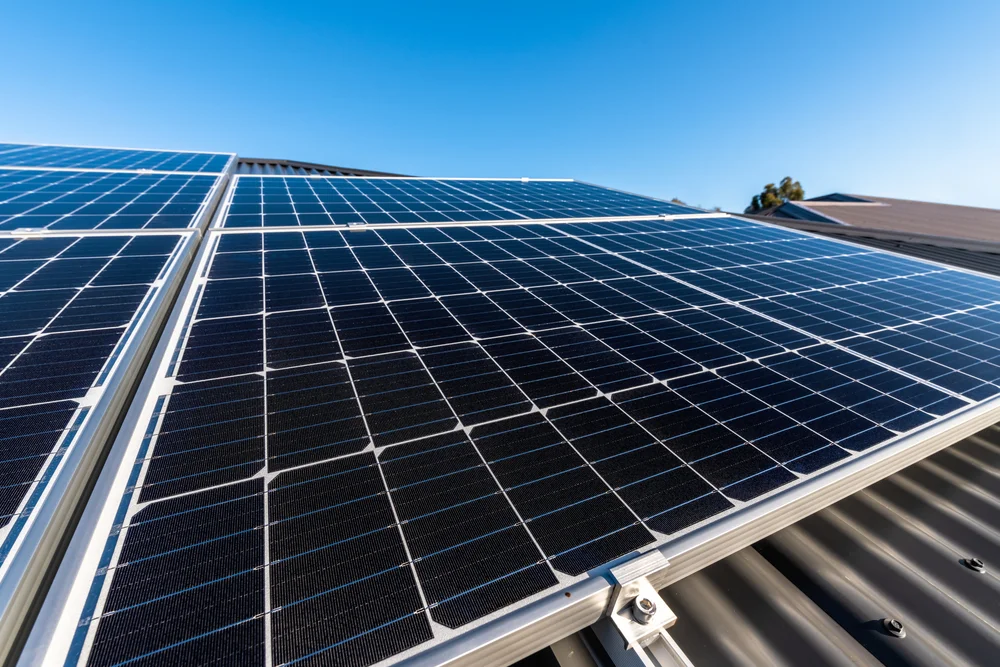The solar rebate can enable householders to offset the cost of getting off the grid. We explore what this tax incentive entails, and who stands to benefit.
20 April 2023 · Fiona Zerbst

The South African Revenue Service (SARS) is offering a tax rebate of 25% on the cost of new and unused solar photovoltaic (PV) panels, that taxpayers install in their homes. While this sounds like a great incentive, the rebate would be available only to those who have the funds to pay upfront.
This article explains what the solar rebate entails, and what the consequences will be for those who remain connected to the electricity grid.
Tip: A personal loan can help you fund the installation of solar panels at home.
South African taxpayers can apply for the rebate when they install fixed solar panels in their homes. The motivation behind this is to get those who can afford solar solutions off the grid, thus freeing up more electricity for municipal users.
The rebate applies to private homes, including properties within a housing complex. However, for safety reasons, some body corporates and homeowners’ associations disallow solar panel installation, notes Philip Joubert, manager of the Centre of Tax Excellence at the South African Institute of Professional Accountants (SAIPA).
For example, if a unit in a complex has thatch roofing, incorrect installation could be a fire hazard, so a board of trustees may deem this too great a risk.
Where solar panels do get the go-ahead, to qualify for the rebate, the body corporate or homeowners’ association must raise a special levy, and make clear how much of this has been set aside for an individual property’s installation.
Landlords and renters who install panels are also eligible for the rebate, as there is no ownership limitation.
It’s unclear who would receive the rebate if spouses share the installation cost. Draft legislation on tax incentives will be published for public comment soon, and this should provide clear-cut guidance, says Joubert.
You don’t qualify for the rebate if you use portable panels, Joubert says.
“This is possibly because portable panels provide, on average, only 100W, while the minimum requirement is 275W,” he explains. “National treasury wants panels that make a larger impact on the grid, and portable panels won’t assist in reducing the pressure.”
Application eligibility opened on 1 March 2023, and will remain open until 29 February 2024.
“This means you will need to have your system installed and paid for, and have your certificate of compliance issued, before 29 February 2024,” Joubert says.
This could be difficult if demand for solar power outstrips supply, and you’re unable to install your system in time.
Although businesses have two years in which to apply for a rebate, if you’re operating a business from your home, you’ll qualify for the individual rebate only, not the business incentive.
“We trust that these nuances will be addressed in the draft legislation,” Joubert says.
The rebate will be 25% of the cost of the fixed solar panels, up to a maximum of R15,000. This excludes the cost of installation, along with batteries, inverters, or generators.
A system suitable for a three-bedroom house may cost anything between R120,000 and R180,000, with the average cost being about R150,000. This would include around ten solar panels, to generate the average amount of capacity needed, at a cost of about R5,000 each.
“This means a rebate of R12,500 and an effective cost of R137,500, which equates to about 8% back overall,” Joubert explains.
“If you are a pay-as-you-earn (PAYE) taxpayer, you will only be able to claim after July 2024. And if SARS audits you to make sure you meet the necessary requirements, you may only get your funds in August or September next year.”
Those who can’t afford a solar solution, and are thus dependent on the grid, will be feeling the effects of the 10% tariff increase that took effect on 1 April. They may also bear the brunt of future increases as more people opt for solar power.
“Municipalities will receive less money for service delivery, and we may end up paying more for this shortfall,” says Joubert. This would also apply to those who install solar panels, if the funds are recouped by a rates and taxes increase.
“The same goes for Eskom. They have certain fixed costs that need to be paid, regardless of how much electricity is generated and sold, and this must be covered,” Joubert notes.
“Unfortunately, most South Africans simply can’t cut anything from their budget – they are already stretched to the limit. How we as consumers will get around this is unclear, but it will undoubtedly put more pressure on our pockets, solar solution or not.”
Tip: Savings put you in a solid financial position so you can respond to crises more effectively. Consider starting a savings plan today.
Free tool

info@justmoney.co.za
4th Floor, Mutual Park, Jan Smuts Drive,
Pinelands, Cape Town, 7405
© Copyright 2009 - 2025 · Powered by NCRCB29
Terms & Conditions
·
Privacy Policy
·
PAIA Manual
View your total debt balance and accounts, get a free debt assessment, apply for a personal loan, and receive unlimited access to a coach – all for FREE with JustMoney.